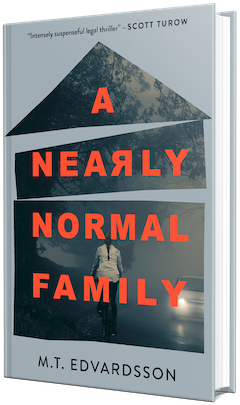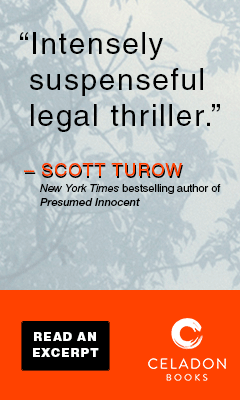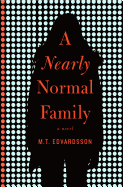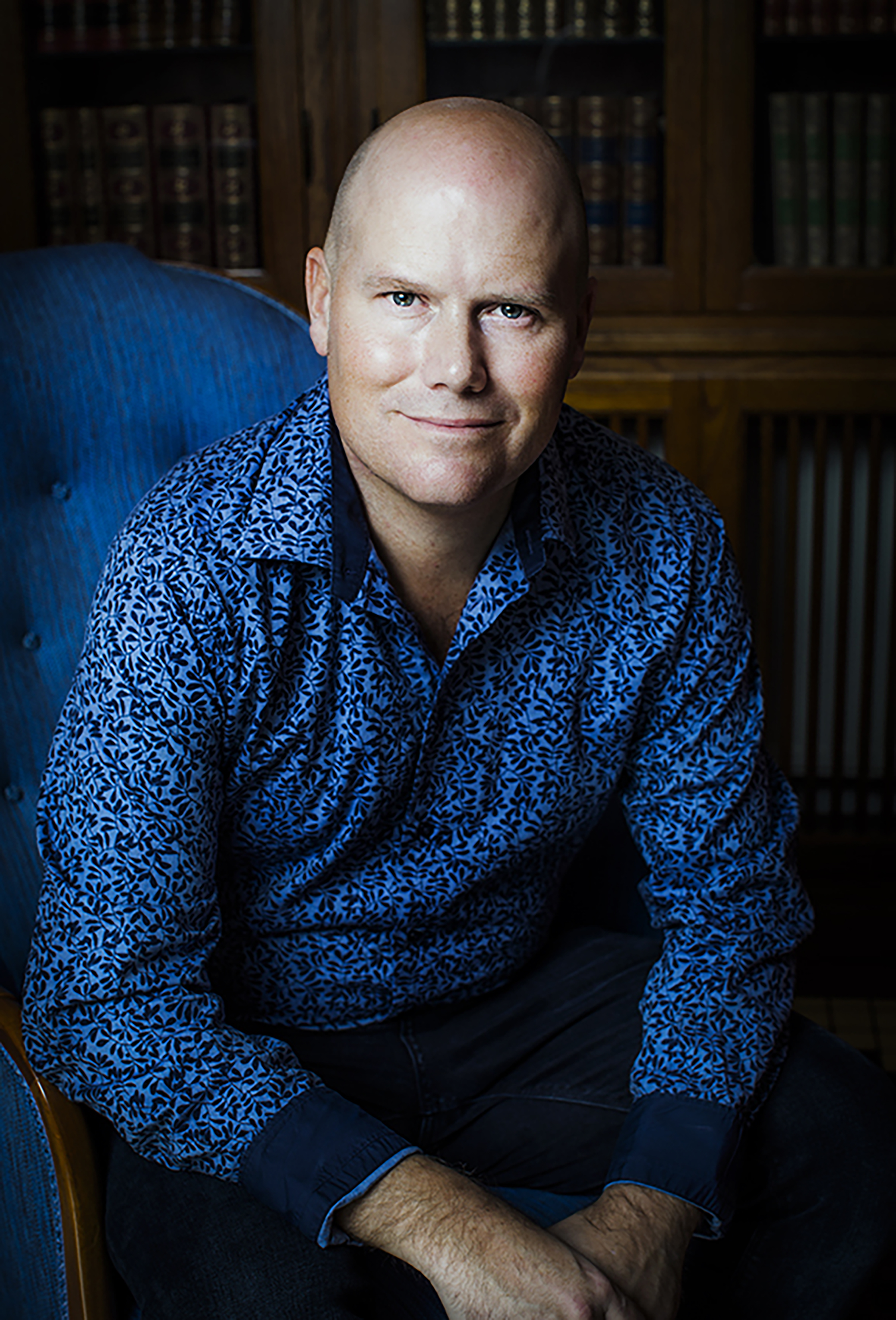A Nearly Normal Family
by M.T. Edvardsson, trans. by Rachel Willson-Broyles
Swedish author M.T. Edvardsson's outstanding U.S. debut, A Nearly Normal Family, opens with a man sitting outside a courtroom. His name is called over the speaker. It's his turn to testify. He enters the courtroom and stares at the defendant. She looks back with dull eyes. And yet: "It takes all my strength not to run over and throw my arms around her and whisper that... I'm not going to let go of her until this is all over."
Because the defendant is the man's teenage daughter. And she's on trial for murder.
Cut to part one, told from the father's POV:
Adam, a pastor, claims his family was a perfectly ordinary one. "We had interesting, well-paid jobs and an extensive circle of friends.... [W]e sorted our trash and used our blinkers and kept to the speed limit and always returned library books on time." Adam and his attorney wife, Ulrika, are preparing to celebrate their daughter Stella's 18th birthday.
When Stella is arrested on suspicion of murdering a much older man Adam didn't even realize she knew, Adam decides he will protect his daughter, no matter what. But would his faith allow him to destroy evidence and give false testimony?
As Adam arrives at his moral crossroads, Stella takes over part two of Family to tell her version of the story. In jail awaiting trial, Stella must see an appointed therapist. She doesn't trust the woman--for her whole life Stella has been diagnosed with one disorder or another, prescribed this drug and that, until "I came to the conclusion that it was all bullsh*t. I am who I am. Diagnosis: Stella."
At this point, the narrative baton is handed over to Ulrika, who takes the story home and reveals all the secrets--and there are many. Throughout the book, Adam is portrayed as the hands-on parent while Ulrika is the workaholic one, but it turns out Ulrika's maternal instincts are quite fierce, and she has a few surprises up her sleeve.
The ordinariness of this family is one of the reasons the story is so gripping. Adam, Ulrika and Stella could be anyone, anywhere, just living their lives until one day tragedy strikes. As they grapple with the new normal, they commit actions they couldn't imagine doing previously, crossing lines they wouldn't have crossed before, going down paths that take them deeper and deeper into dangerous territory. But when the stakes involve the survival of the family, readers might wonder if they would behave differently.
Tackling moral dilemmas through different narrators, Edvardsson is able to provide three sides to the story, each from a convincing voice. With multiple narrators, sometimes one is more enthralling than another, but all three here are equally arresting. After writing as a straight-and-narrow pastor, Edvardsson transitions seamlessly to the voice of a rebellious teenage girl--in jail, no less--and then to that of a cunning lawyer. Amazingly, in one narrator's version of the story, the other characters might seem insensitive, unreasonable or even straight-up wrong, but then the viewpoint shifts and the narrator who takes over sounds completely rational, with valid justification for his or her behavior. No one is 100% wrong or right, and the exploration of the gray area between righteousness and immorality makes Family realistic, even when the action becomes incredibly dramatic.
At its core, A Nearly Normal Family asks: How well do you know your loved ones? Or your best friend? Or anyone? Whom can you trust? Edvardsson doesn't give easy answers, and even throws in commentary about the Swedish legal system when it comes to determining guilt or innocence. But the author raises provocative questions, wraps them up in a propulsive thriller and delivers an ultra-satisfying read that's far from ordinary. --Elyse Dinh-McCrillis








